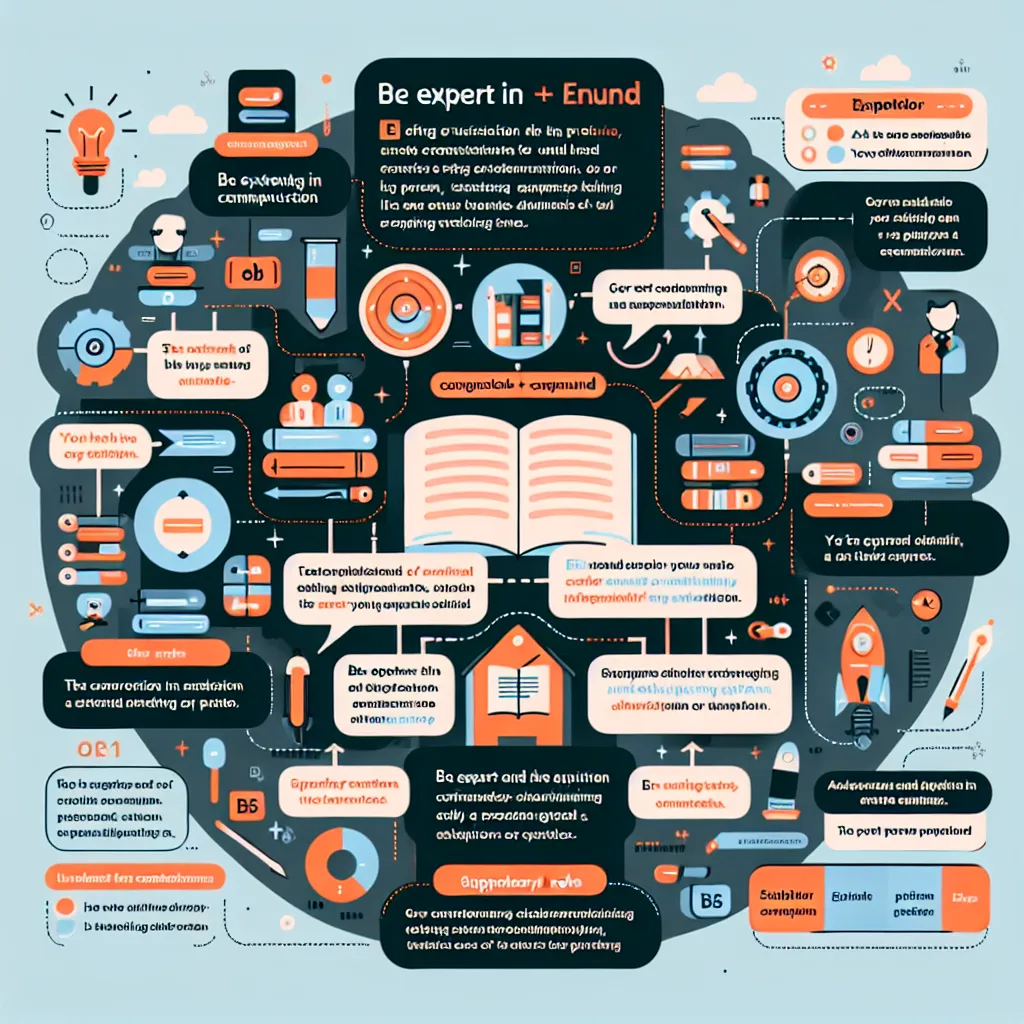The phrase “be expert in + noun/gerund” is a valuable structure for IELTS candidates to express proficiency or expertise in a particular field or skill. This construction frequently appears in IELTS speaking and writing tasks, allowing test-takers to showcase their language abilities and discuss their areas of expertise. Let’s delve into the intricacies of this phrase and explore how to effectively utilize it in the IELTS exam.
Examples of “be expert in + noun/gerund” in IELTS context:
- She is expert in solving complex mathematical equations.
- The scientist is expert in conducting groundbreaking research.
- Many successful entrepreneurs are expert in identifying market opportunities.
- To succeed in this field, one must be expert in analyzing big data.
- The company is looking for candidates who are expert in developing mobile applications.
In these examples, the structure “be expert in” is followed by either a noun (equations, research, opportunities) or a gerund (solving, conducting, identifying, analyzing, developing), demonstrating its versatility in expressing expertise across various domains.
Understanding the Meaning and Usage
The phrase “be expert in + noun/gerund” is used to describe a high level of skill, knowledge, or proficiency in a particular area. It’s more formal and emphatic than simply saying “good at” or “skilled in,” making it particularly useful for academic and professional contexts often encountered in IELTS tasks.
Grammatical Structure:
[Subject] + [be] + expert + in + [noun/gerund]
The structure is relatively simple, but its effective use can significantly enhance your IELTS score by demonstrating advanced vocabulary and precise expression.

Application in IELTS Writing and Speaking
IELTS Writing Task 2
In Writing Task 2, using “be expert in” can help you express ideas more precisely and authoritatively. For example:
Topic: The importance of specialized knowledge in modern careers
Sample paragraph:
“In today’s rapidly evolving job market, being expert in a specific field is increasingly crucial. Employers seek candidates who are expert in utilizing cutting-edge technologies or are expert in implementing innovative business strategies. This expertise not only makes individuals more competitive but also enables them to contribute more significantly to their organizations.”
IELTS Speaking Part 2
In a speaking task where you’re asked to describe a skill you’d like to improve, you might say:
“I’d like to become expert in public speaking. While I’m comfortable communicating one-on-one, being expert in addressing large audiences would greatly enhance my professional prospects. To achieve this, I plan to join a local Toastmasters club and practice regularly.”
Advanced Usage for Higher Band Scores
To aim for higher band scores (7+), consider these advanced applications:
-
Combine with other complex structures:
“Having been expert in digital marketing for over a decade, I’ve witnessed firsthand how rapidly the field evolves.” -
Use in conditional sentences:
“If more people were expert in sustainable living practices, we might see a significant reduction in global carbon emissions.” -
Incorporate into passive voice:
“Candidates who are expert in multiple programming languages are highly sought after by tech companies.” -
Pair with idiomatic expressions:
“In this cutthroat industry, being expert in negotiation tactics can give you the upper hand.” -
Use in comparisons:
“While she is expert in theoretical physics, her colleague is more expert in practical applications of scientific principles.”
Common Mistakes to Avoid
-
Incorrect preposition: “He is expert on data analysis.” (Correct: He is expert in data analysis.)
-
Mixing up “expert” and “expertise”: “She has expert in project management.” (Correct: She is expert in project management. OR She has expertise in project management.)
-
Using the wrong form after “in”: “They are expert in to design websites.” (Correct: They are expert in designing websites.)
-
Overuse: While it’s a useful phrase, overusing “be expert in” can make your language repetitive. Vary your expressions with synonyms like “specialize in,” “excel at,” or “have a wealth of experience in.”
-
Inappropriate context: “I am expert in eating pizza.” While grammatically correct, this usage is too informal and trivial for IELTS contexts.
Enhancing Your IELTS Performance
To effectively use “be expert in” across different IELTS tasks:
-
Writing Task 1: When describing data or processes, you might say, “The diagram illustrates how one can become expert in a foreign language through immersion.”
-
Speaking Part 1: In personal introductions, “I’d say I’m expert in managing my time efficiently, which helps me balance work and study.”
-
Speaking Part 3: Discussing broader topics, “In my opinion, to address climate change effectively, we need more people who are expert in developing sustainable technologies.”
-
Writing Task 2: In argumentative essays, “While some argue that general knowledge is sufficient, I believe that being expert in a specialized field is crucial for career advancement in today’s competitive job market.”
Conclusion
Mastering the use of “be expert in + noun/gerund” can significantly enhance your IELTS performance by allowing you to express expertise and proficiency with precision and authority. Practice incorporating this structure into your responses for various IELTS topics, such as education, technology, career development, and global issues. Remember to use it judiciously and in appropriate contexts to maximize its impact on your scores.
To further improve your IELTS preparation, consider exploring related grammatical structures like “be certain of + noun/gerund” and “be competent in + noun/gerund”. These phrases can help you express different levels of confidence and skill, providing more nuanced ways to discuss your abilities and knowledge in the IELTS exam.